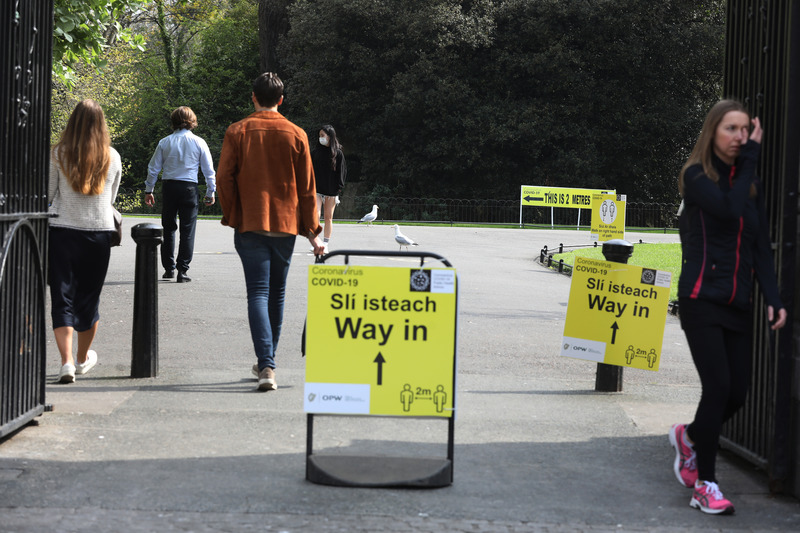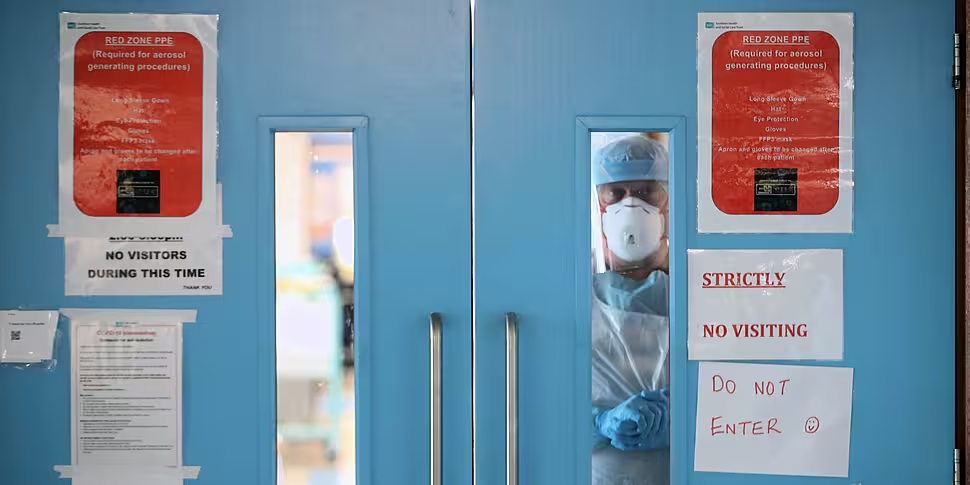A leading intensive care physician says younger people are becoming very sick with COVID-19, with around half of patients currently in ICU under the age of 60.
There are 232 people with the virus in hospitals nationwide, with 65 in intensive care.
It comes as two further deaths related to COVID-19 and 511 new cases were confirmed yesterday afternoon by NPHET.
Public health experts are asking people to keep their contacts low this Easter Bank Holiday weekend.
The Deputy Chief Medical Officer Dr Ronan Glynn is encouraging people to keep their contacts low and only meet up with others outdoors.
He has also urged everyone to avoid crowds, not to travel in cars with other households and to get tested if they have symptoms.
Dr Catherine Motherway, an Intensive Care Consultant at University Hospital Limerick, said the number of people hospitalised with coronavirus is coming down, albeit not fast enough.
She told Sean Defoe on Newstalk Breakfast: "The numbers have come down somewhat but nowhere near as low as they were last summer.
"We still have a significant burden of the disease in ICUs and with case numbers of 500 every day, unfortunately, some of those people will get sick and require our services.
"The ways to bring our numbers down is to number one, bring the transmission of the disease down but also the vaccination programme will ultimately make a difference to our numbers.
She added: "Half our patients in ICU are under the age of 60, and there's been about 800 admissions to intensive care in this third surge, so that's a large number of people who have gotten sick for various reasons."
Dr Motherway also outlined that more than half of people who died from COVID-19 passed away at home and not in hospitals.
"People don't realise it but a lot of people who died from this disease died in their own homes, over half of the deaths from COVID were not in hospital at all," she said.
"These were people who were older and had made choices about how they would be taken care of at the end of life, so a large number of patients didn't come to hospital."
 File Photo of St Stephen's Green. Photo: Leah Farrell/RollingNews.ie
File Photo of St Stephen's Green. Photo: Leah Farrell/RollingNews.ieThe public is frustrated and looking for hope, Dr Motherway acknowledged, but she urged people to keep up their efforts to suppress the virus as the vaccine rollout continues to ramp up.
Ireland's millionth dose of the vaccine against COVID-19 will be given in a matter of days and by tonight, the HSE expects hospitals and mass vaccination clinics to have administered between 900,000 and 950,000 doses.
"My message is that there's light at the end of this famous bloody tunnel and I think everybody is very frustrated because they don't actually know when that light emerges," she said.
"It heavily depends on the vaccine rollout, and there has been difficulty in supply, as there was always going to be at the beginning of trying to vaccinate the whole world population.
"The vaccination rollout is what will help us return to some form of normal but while we await the vaccination rollout, people need to be still very careful, particularly those who are vulnerable and awaiting their vaccination, and particularly those who have just been vaccinated and need to wait for a period of time to make sure they have the protection that is required.
"We're still going to be doing the physical distancing, the hand-washing, the mask-wearing, for some time to come as we continue to vaccinate our population."
'Very little vaccine hesitancy in Ireland'
Dr Motherway added that the good news is that there is very little vaccine hesitancy in Ireland.
"The really good thing about the vaccination programme is that there is very little vaccine hesitancy in Ireland, people are really keen to get vaccinated," she said.
"That's really good for the entire population because when you get vaccinated you protect yourself, but if the vaccine reduces transmission, which they are beginning to look like they do, it will help us all gain community immunity to this disease and help diminish its significance.
"I think unfortunately it's going to stay with us in some shape or form for a number of years to come but its impact on us as a population, as we get more immune to it, will hopefully diminish."









